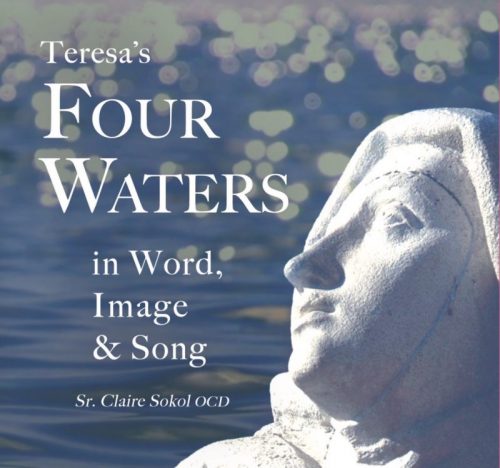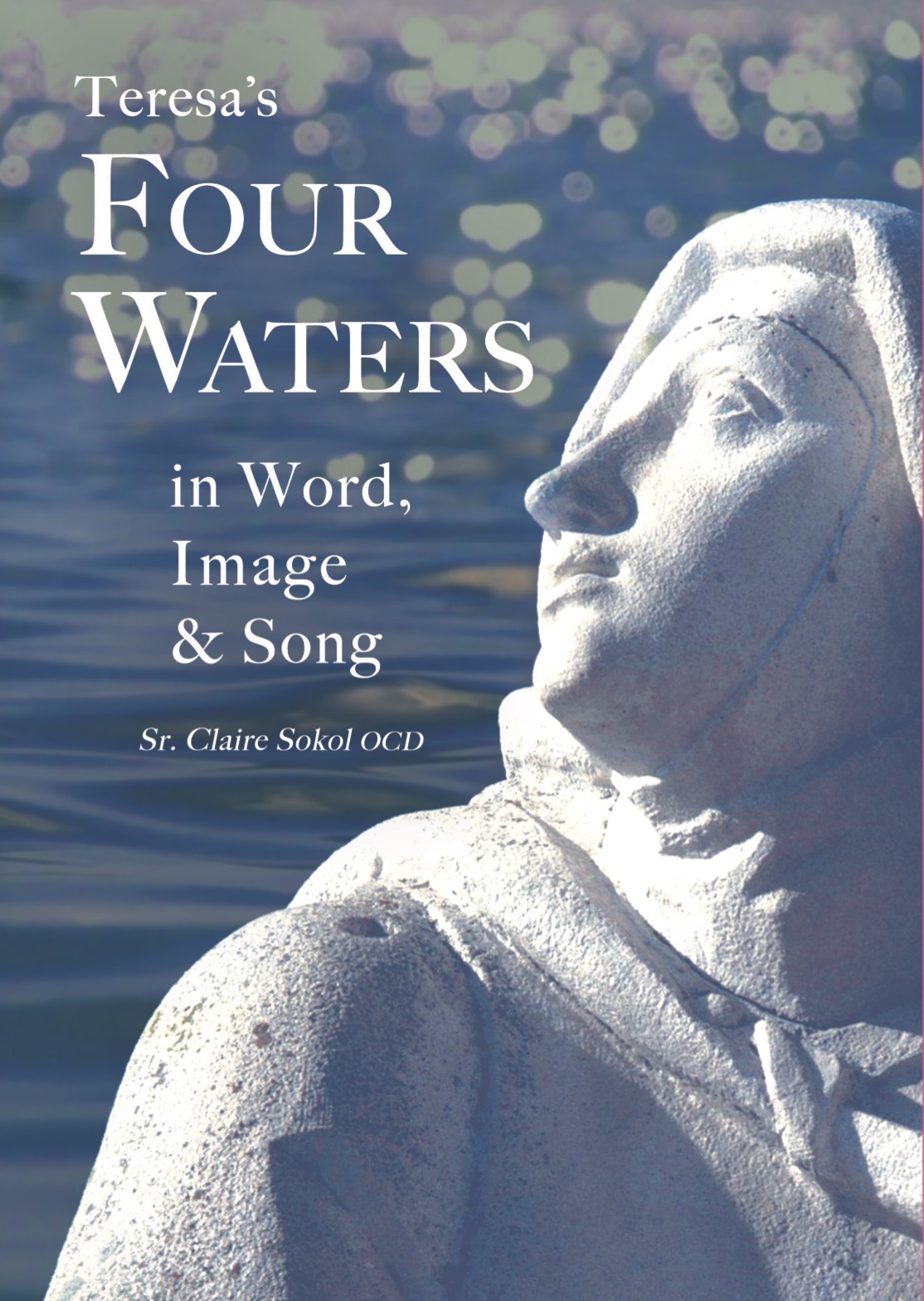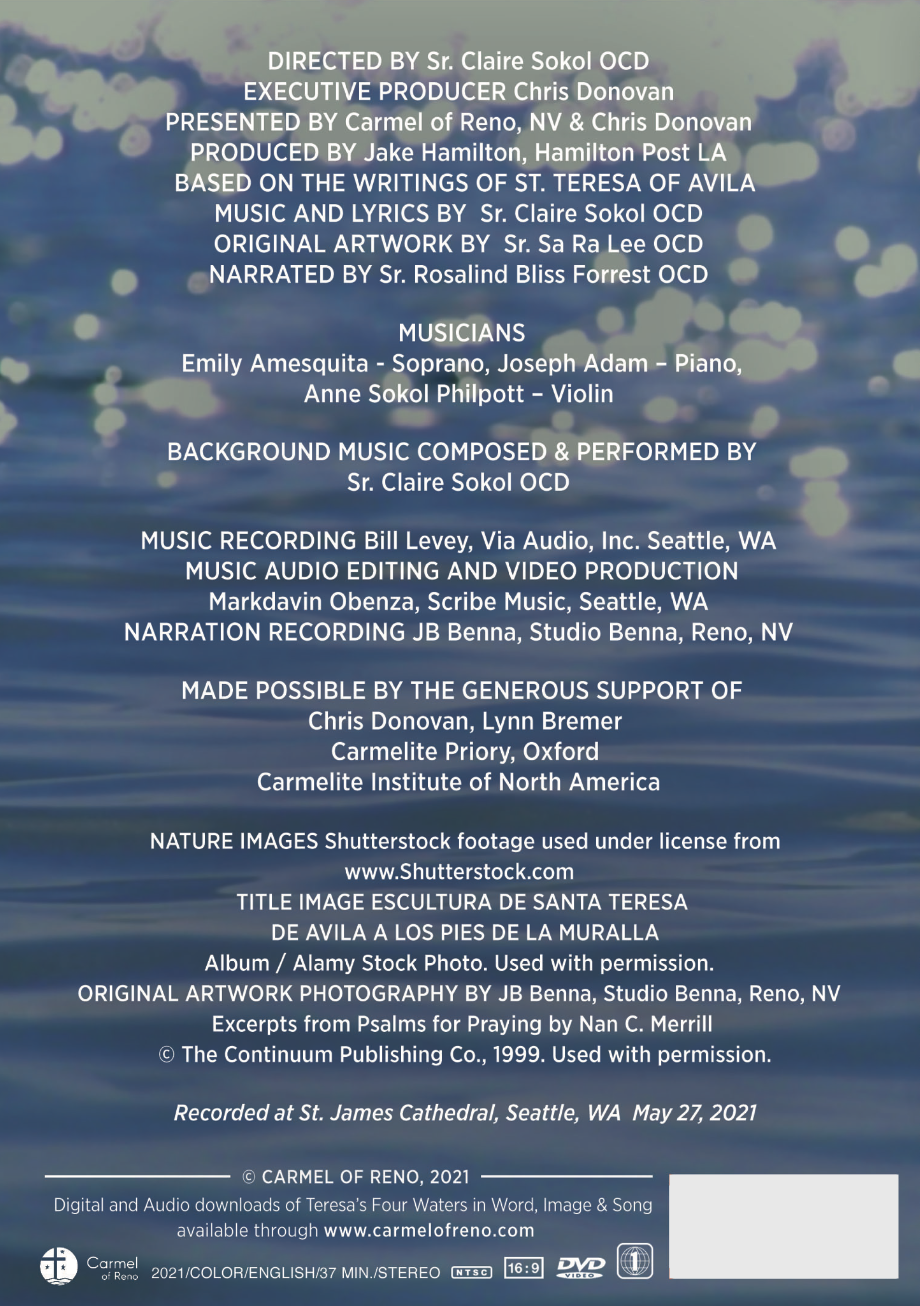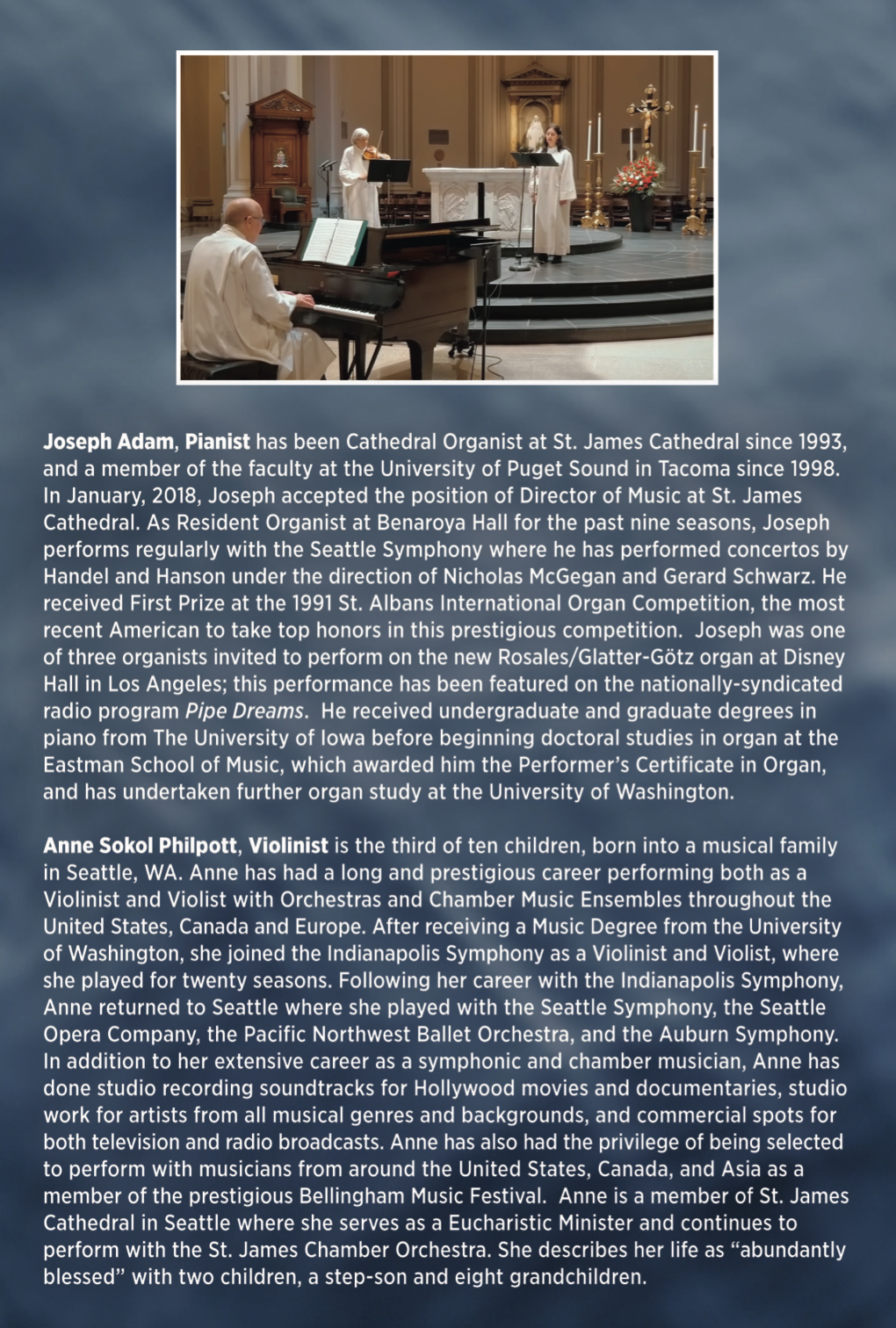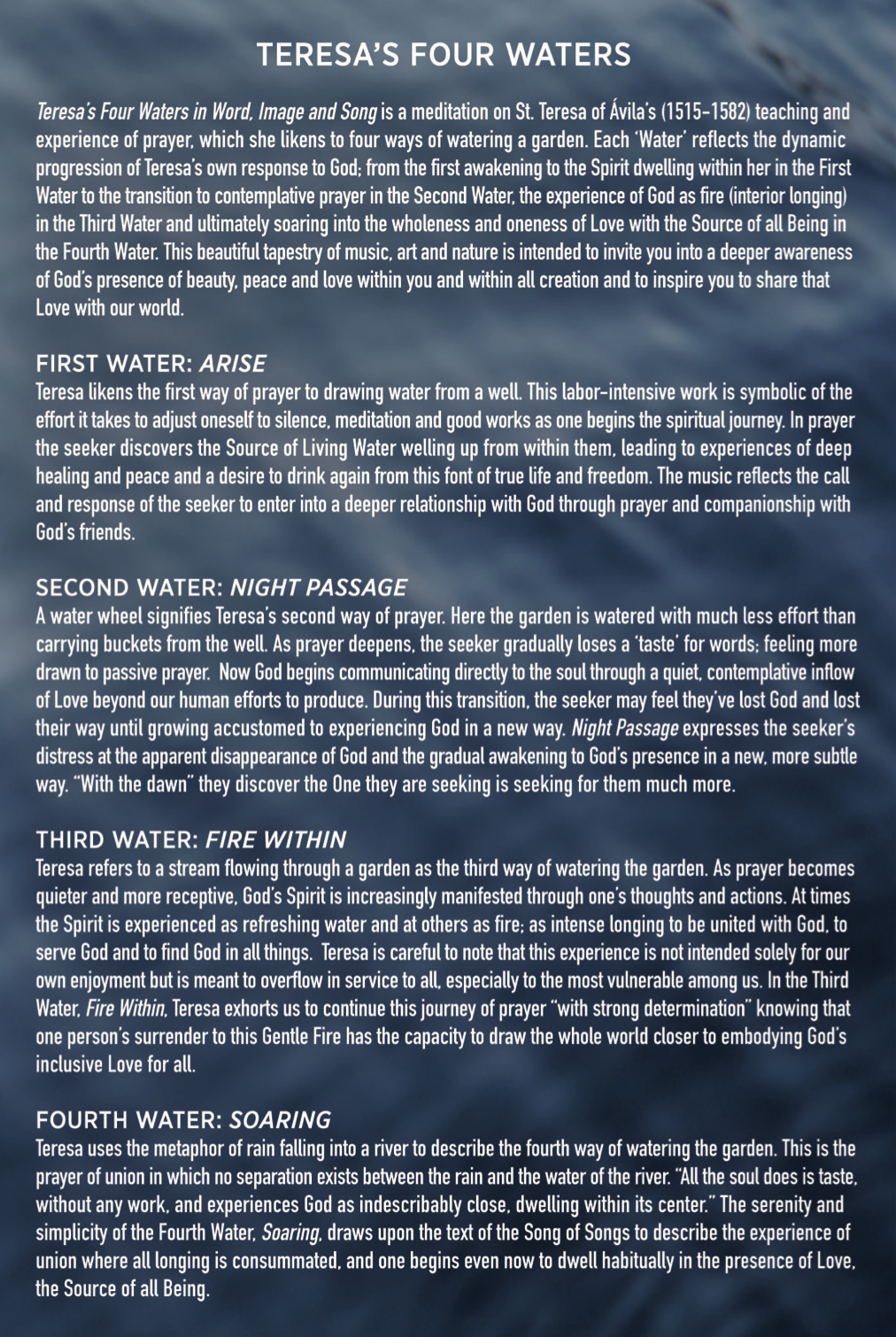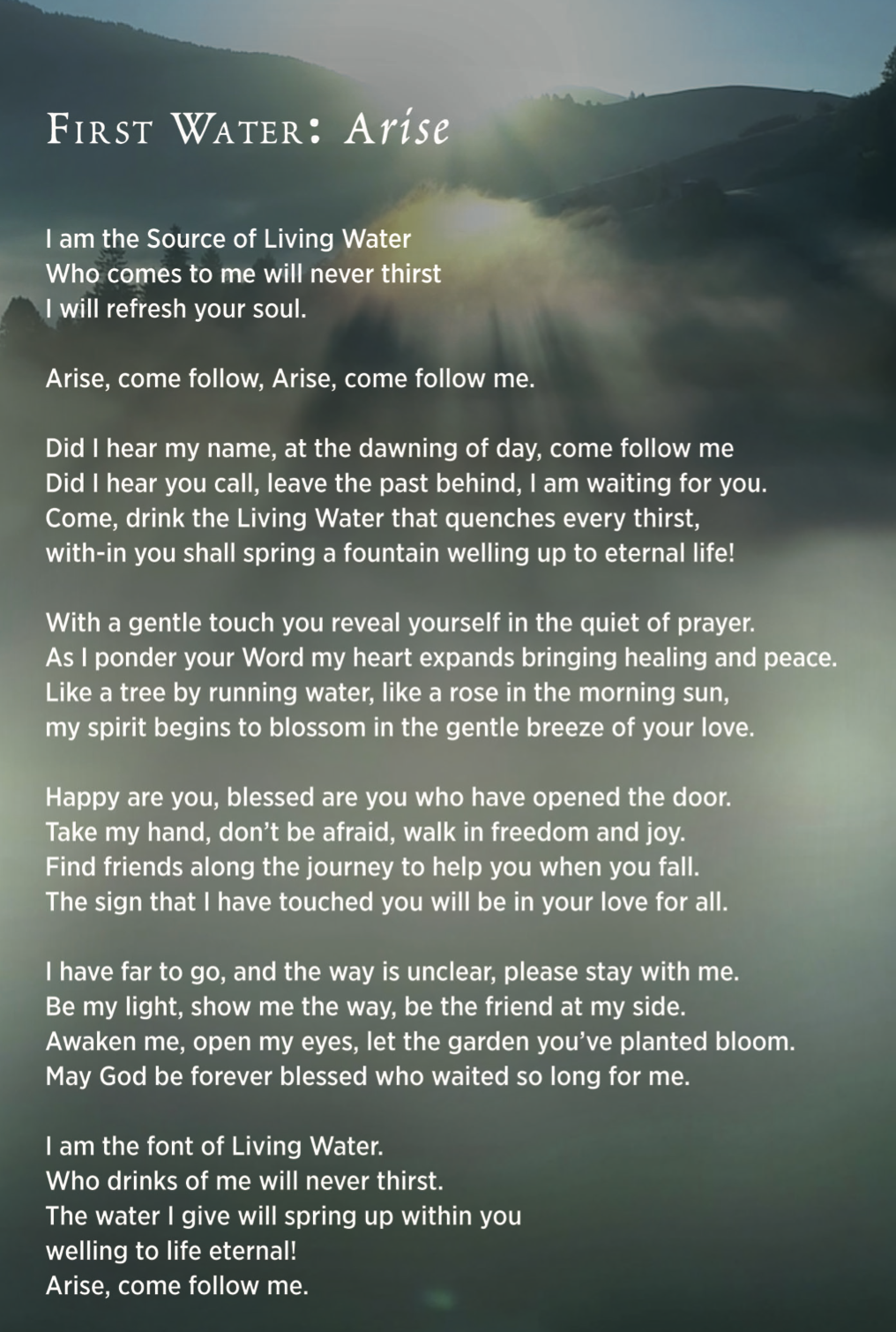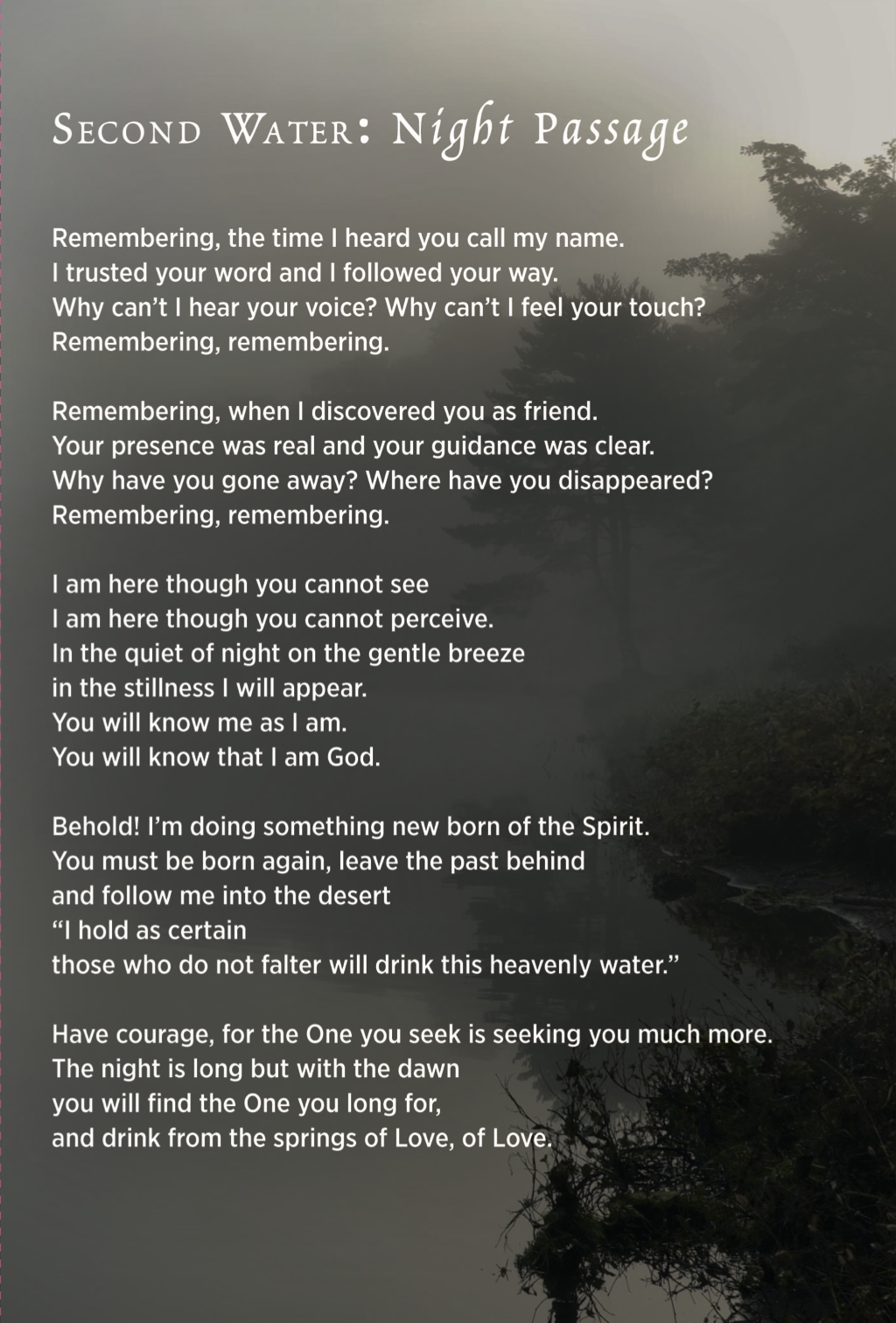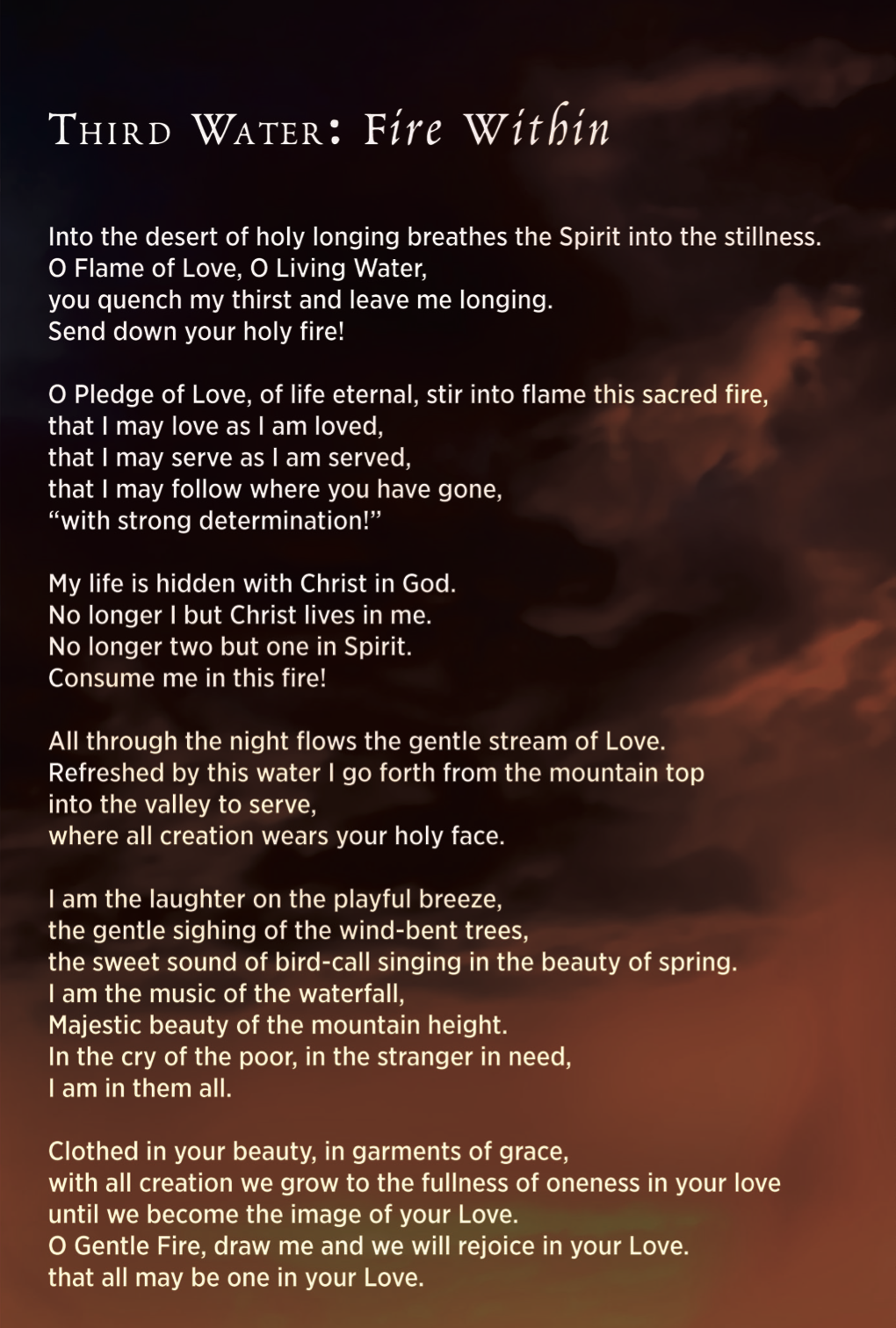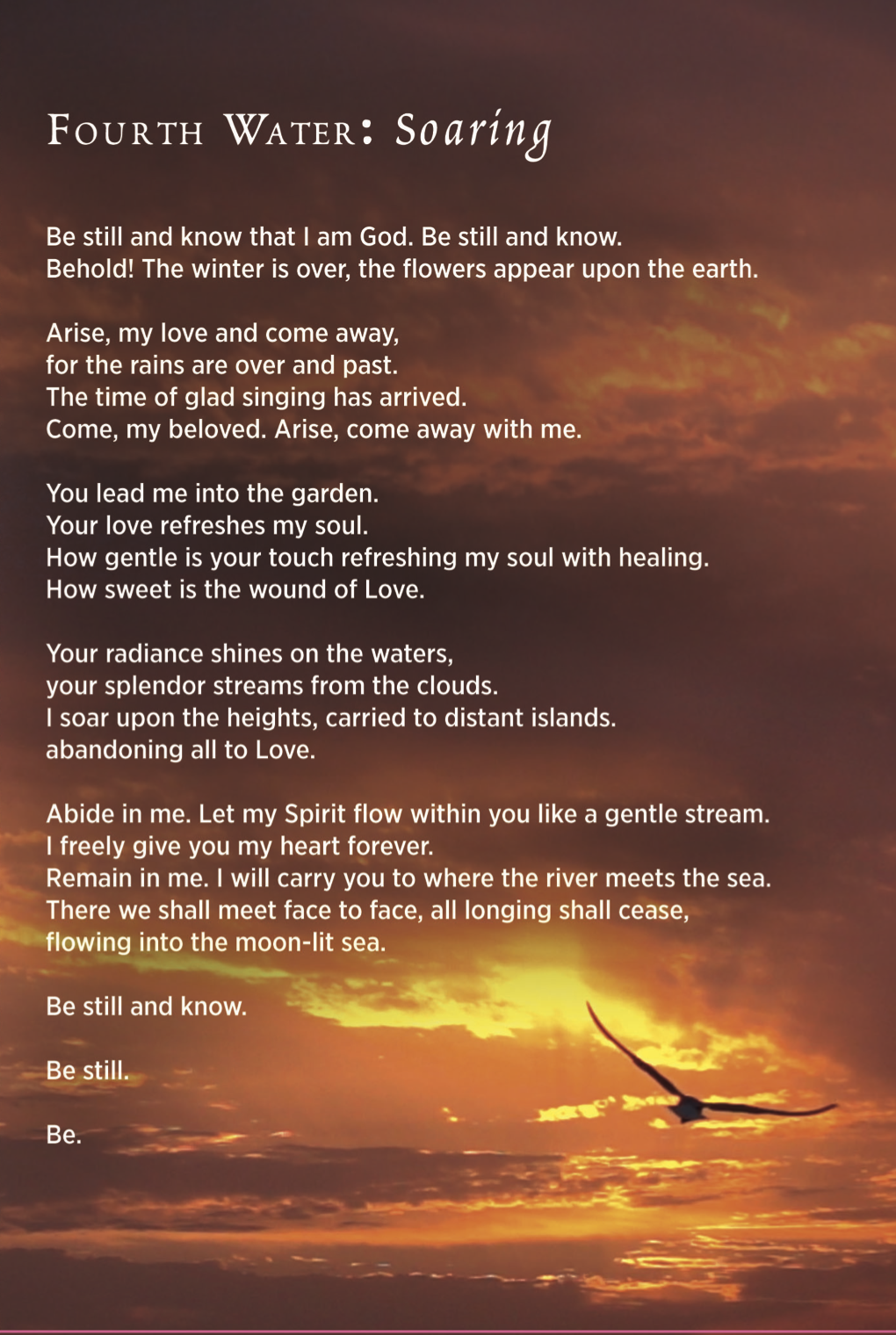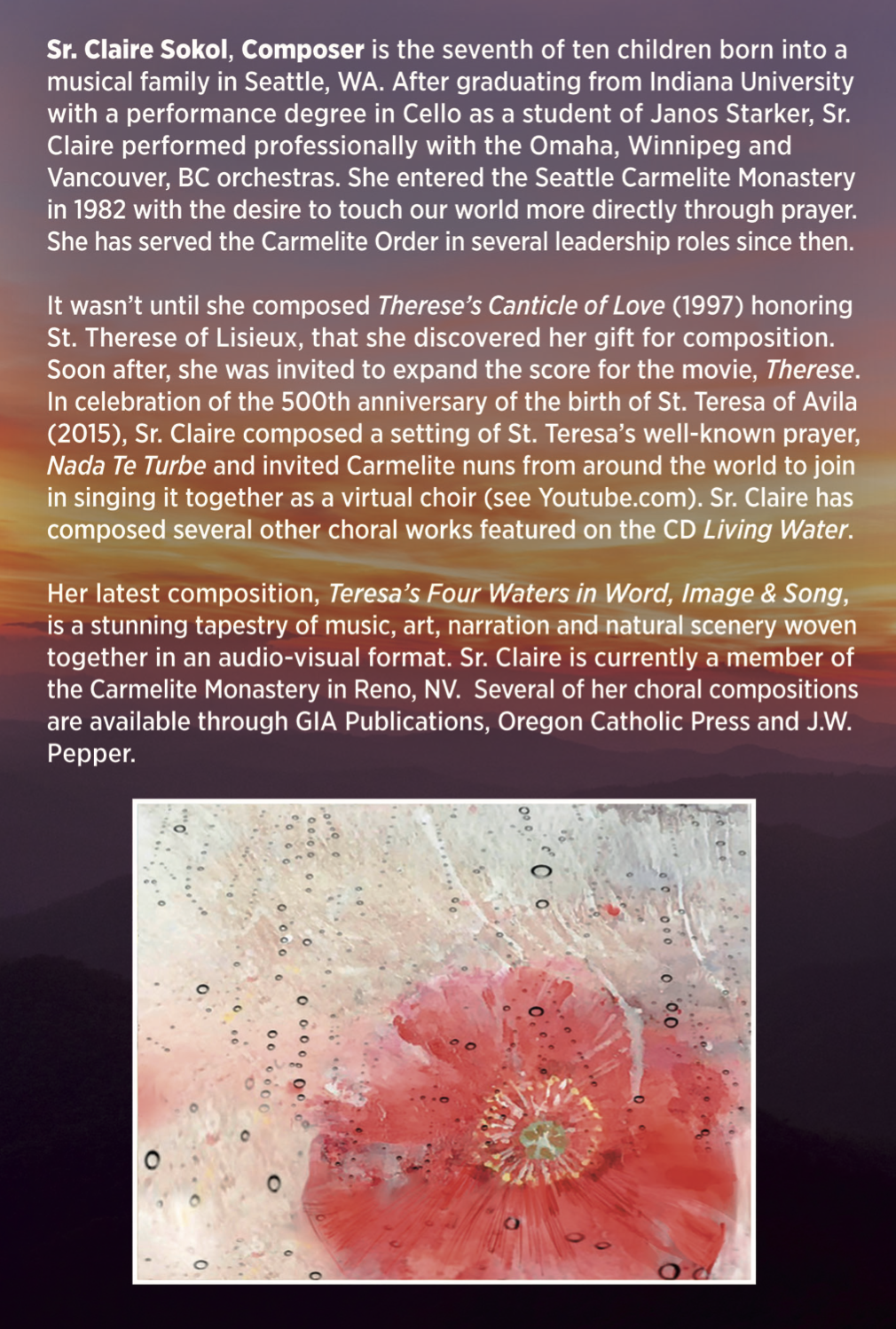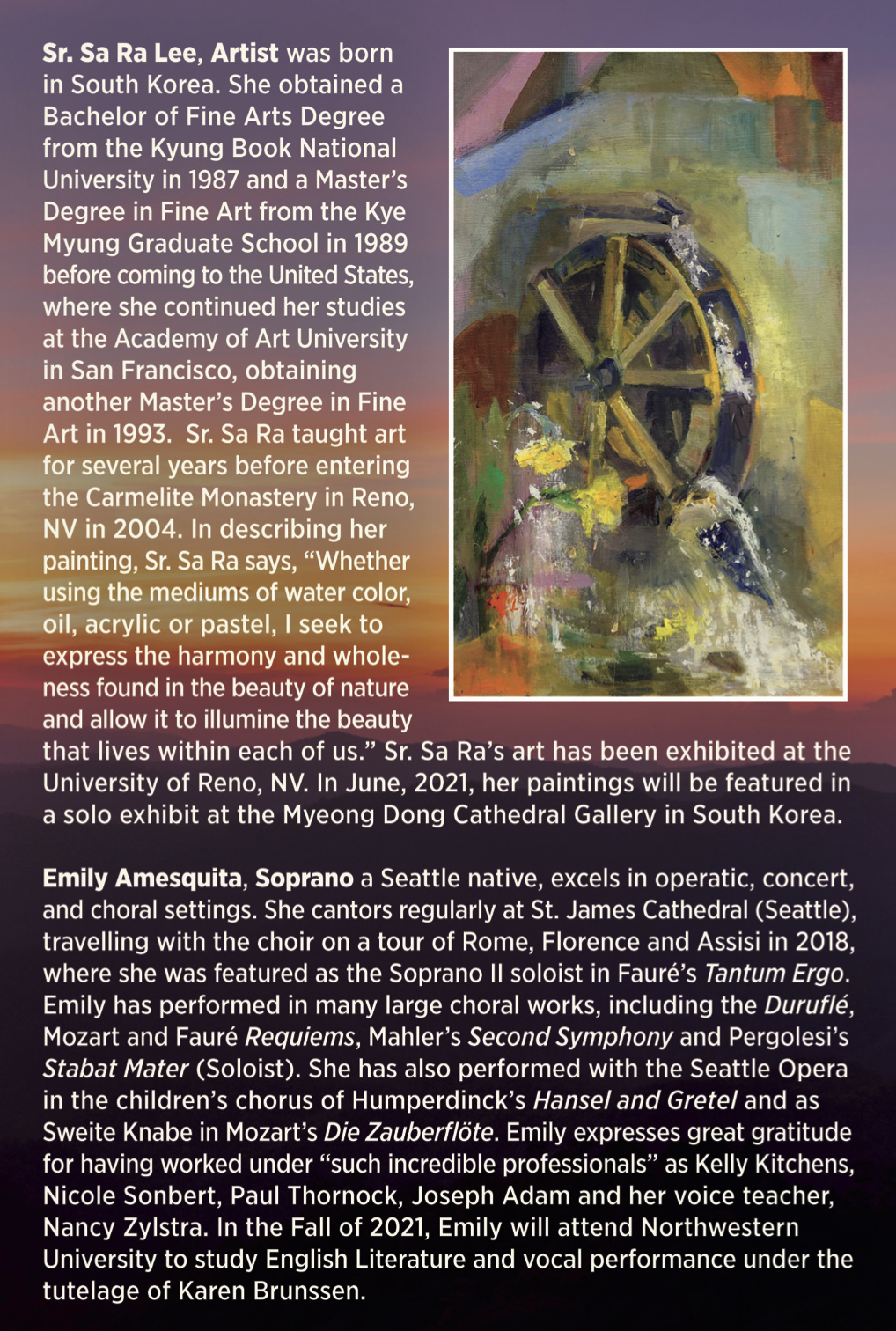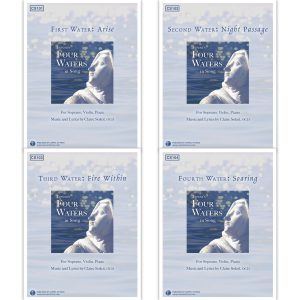Description
Teresa’s 4 Waters in Word, Image and Song is a meditation on St. Teresa of Ávila’s (1515-1582) teaching about prayer, which she likens to four ways of watering a garden. Each ‘Water’ reflects the dynamic progression of Teresa’s experience of God in prayer. This beautiful tapestry of music, art and nature is intended to invite you into a deeper awareness of God’s presence of beauty, peace and love within you and within all creation and to inspire you to share that Love with our world.
First Water: Arise
Teresa likens the first way of prayer to drawing water from a well. This labor-intensive work is symbolic of the effort it takes to adjust oneself to silence, meditation and good works as the spiritual journey begins. In prayer, experiences of deep healing and peace lead to greater freedom and a desire to pursue a deeper relationship with God and companionship with God’s friends.
Second Water: Night Passage
A water wheel signifies Teresa’s second way of prayer. Much less effort is required as prayer deepens through a quiet, contemplative inflow of Love. The adjustment to the apparent ‘disappearance’ of God in contemplative prayer can be confusing and disorienting. However, “with the dawn” the seeker discovers the One for whom they are seeking is seeking for them much more.
Third Water: Fire Within
Teresa refers to a stream flowing through a garden as the third way of prayer. Here, the experience of refreshment and joy in prayer leads to deeper longing for God, felt as fire. Teresa notes this experience of God is intended to overflow in service to all. She exhorts us to continue this journey “with strong determination” knowing that the surrender of one person to this Gentle Fire has the capacity to draw the whole world closer to the Source of all Love.
Fourth Water: Soaring
Teresa uses the metaphor of rain falling into a river to describe the fourth way of prayer. Here, no separation exists between the rain and the river. “All the soul does is taste, without any work, and experiences God as indescribably close, dwelling within its center.” Lyrics, drawn from the Song of Songs describe this experience of union where one begins, even now, to dwell habitually in the presence of Love, the Source of all Being.

